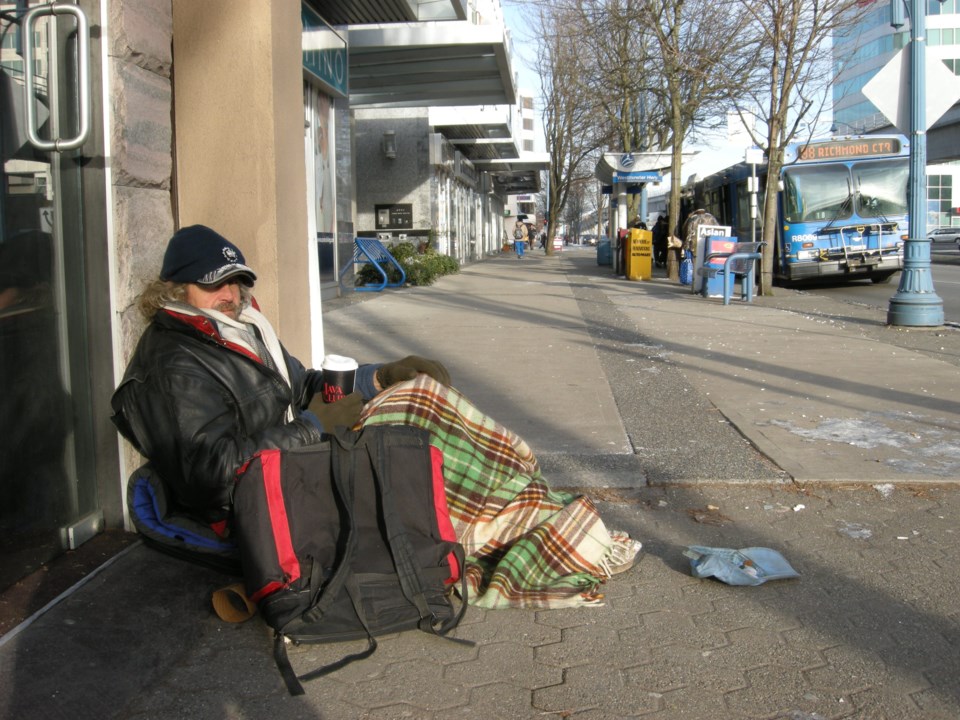Eighty-five people were identified in Richmond as being without a permanent home – up by 21 per cent since the last count in 2017.
While 58 people were temporarily housed in shelters in Richmond, there were still 25 people found living unsheltered throughout the city on March 3 and 4, when volunteers took part in the 2020 Metro Vancouver homelessness count. Two more people were identified as having “no fixed address,” bringing the official total to 85.
Fourteen of these homeless people in Richmond were Indigenous.
De Whalen, chair of the Richmond Poverty Reduction Coalition, said it’s frustrating the numbers don’t seem to be changing over the years.
In the overall count in Metro Vancouver, 3,605 people were counted as homeless, with 1,029 living outside shelters. This was up slightly from the 2017 count.
In 2005, there were 35 homeless people in Richmond and in 2014 this number was still just 38. But in the 2017 count, there were 70 people identified without permanent homes and this year the number had risen by 15 more.
While the addition of the Salvation Army shelter in Ironwood and the temporary shelter in central Richmond are helping, the problem is “deeper than just housing,” Whalen explained.
“All we’re doing is treating the symptoms – not the overall problem,” she said.
Governments seem to pass on the responsibility from one to another, she added, with the federal government downloading the responsibility for homeless people to the province, the province to the local governments and the local governments leaning on the faith community to provide basic social services like community meals, showers and shelters.
“Come on – it’s always passing the buck, we’re sick of it,” Whalen said.
What is needed is a “full-on poverty reduction strategy,” she added, with guaranteed basic social services.
While Canadians accept that health care and education up to Grade 12 is free and universal, Whalen would see this to expand to areas like housing, food security and transportation.
Housing is not a “magic bullet,” she said, as other services are needed to keep people out of poverty as well.
In the 2020 count, the vast majority of homeless people in Metro Vancouver - 2,095 - were in Vancouver. The second highest number was in Surrey and the third, in Langley.
One-quarter of the homeless people identified in the Metro Vancouver count were seniors.
The number of homeless youth was down from 16 per cent in the 2014 and 2017 counts to eight per cent in 2020.



